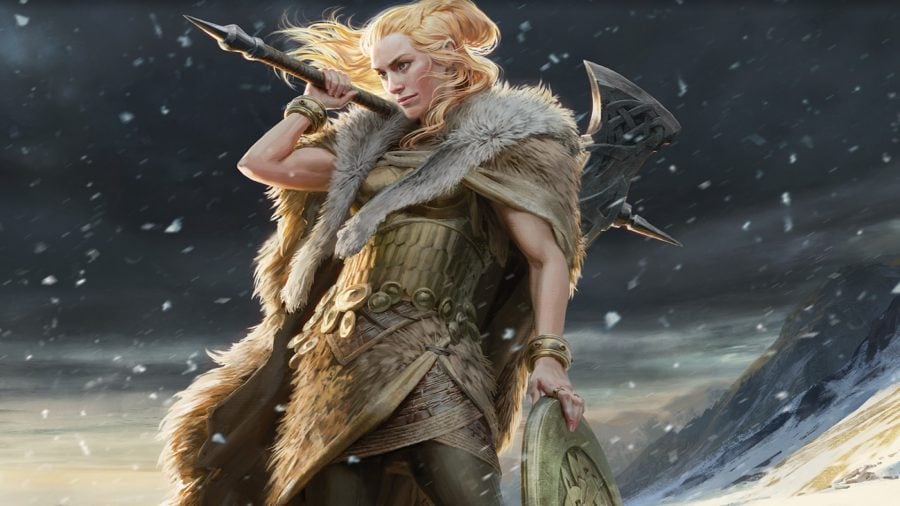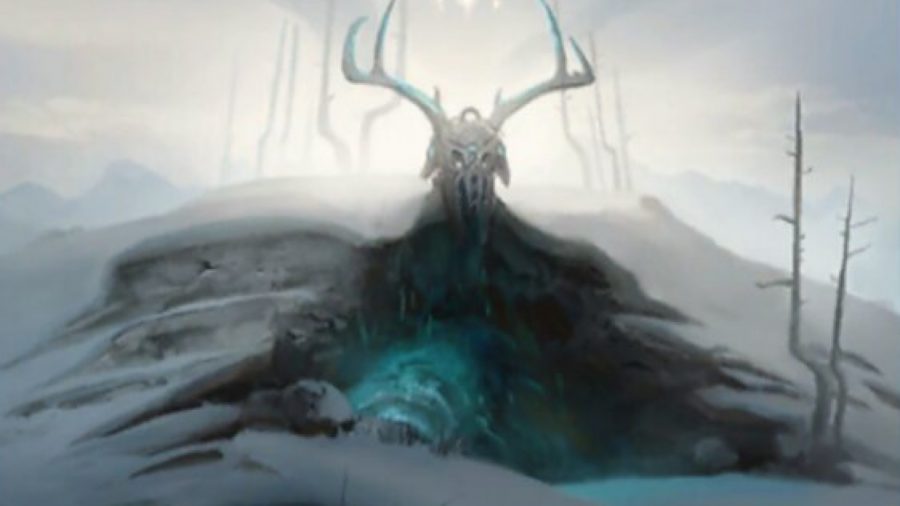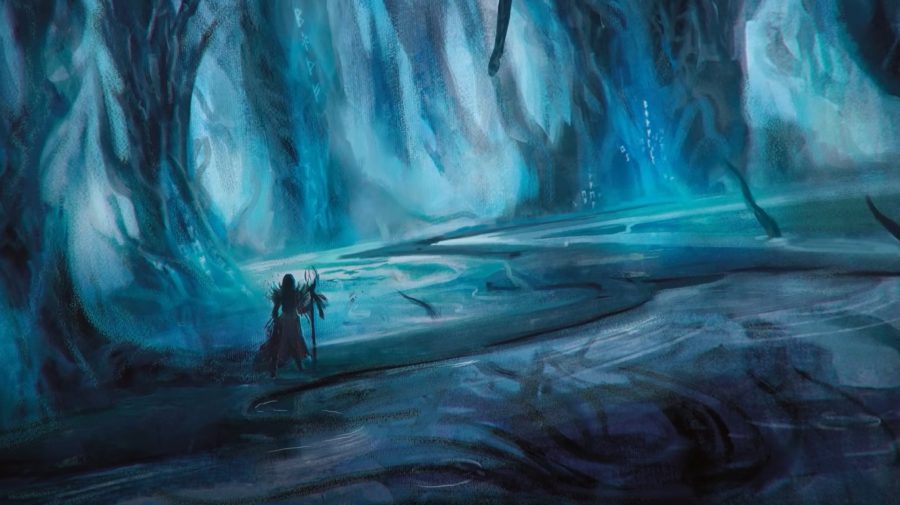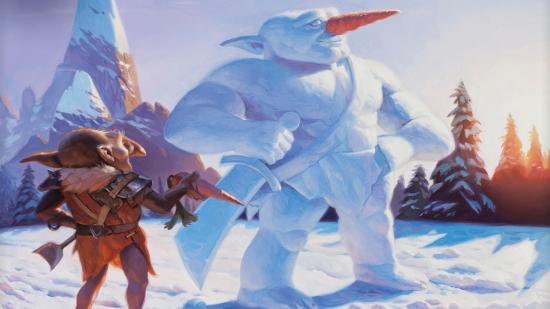There’s no lands like Magic: The Gathering snow lands. This rhymes, but it’s also dead true. Whereas most of the more exciting land cards in Magic: The Gathering have some cost associated with them, whether it’s coming into play tapped, paying life, or only producing colourless mana, your typical snow land is virtually indistinguishable from any other basic land card.
That’s because each colour of mana in Magic: The Gathering has its own snow-covered basic lands, which are both basic lands (so you can fill your Commander deck with them or fetch them up with ramp spells) and also snow lands. Snow lands, whether basic or not, can be used in the normal fashion, to play normal spells, but the mana they produce can also be used to pay for special snow cards and abilities.
Snow lands first showed up in Magic long ago, in the MTG set Ice Age, which came out in 1995, and were vastly unpopular until the mechanic was revisited in Cold Snap (2006). They were more or less absent from the game for a long time, but snow cards have made a comeback recently, in both Standard and Modern. They’ve been printed in recent products such as Modern Horizons, Commander 2019, and the Standard set Kaldheim.

Why play MTG snow lands?
Well, “why not?” is perhaps the better question. There are a few niche MTG cards that give snow lands a hard time, but none of them are widely played. In fact, it’s so rare you’ll come up against one, that some schools of thought say you should always play snow lands over regular basic lands, even if not a single card in your deck cares about them, just so you can keep your opponent guessing. Since there are lots of popular snow strategies in Magic, playing a regular basic land on turn one is a dead giveaway that you’re not using any of them.
But the more interesting reason to play snow lands is that you’re using snow cards. Some cards, like Arcum’s Astrolabe, can only be cast with snow mana, while others, like Marit Lage’s Slumber, provide great payoffs for playing lots of snow permanents. The easiest way to have a ton of those out on the battlefield? You’ve guessed it: snow lands.
Under Construction: How to build a deck in MTG
Snow lands have their place in the top Standard decks of today, too. Faceless Haven, for instance, was one of the best MTG cards of 2021, until it got banned in January. This snow land could masquerade as a beefy creature for three snow mana and was invaluable for finishing off a foe in longer games.
Outside the MTG banlist, Blizzard Brawl is an incredible one mana removal spell in green, and much better if you have three snow lands on the field, while Frost Bite can do a decent lightning bolt impression in decks stuffed with snow lands.

What are the best Snow Lands?
Faceless Haven was a powerhouse, but since it’s gone from Standard, that leaves a rather boring answer. The basic snow lands – that’s snow-covered islands, swamps, mountains, forests, and plains, are far and away the best snow lands in Magic: The Gathering. Didn’t I just suggest you should fill your deck with them? They’re as good as basic lands 99% of the time, and provide access to a range of new strategies. Plus they look pretty cool, especially the full-art snow lands from Modern Horizons and the pixel art ones from the PixelSnowLands.jpg Secret Lair.
Beyond that, there’s not many snow lands worth shouting about. Scrying Sheets could be a decent source of card draw, but it’s too random to see much use. The Modern card Frostwalk Bastion does a poor ‘Faceless Haven’ impression. And Dark Depths, which can make a giant 20/20 indestructible flying creature, is exciting, but also banned, banned, banned.
Two-colour snow lands, whether recent ones like Alpine Meadow, or older cards such as Arctic Flats, are well worth playing in snow decks, but are otherwise generally unimpressive, for the simple reason that they always enter the battlefield tapped, and provide no benefit besides being snow lands.

What are the best counters for snow lands?
There are a few cards that are made to melt snow decks. They fall into a category known as ‘hate cards’, cards designed specifically to counteract a niche strategy. If you think your opponent is playing snow lands, consider sticking some of these in your deck. It’ll be worth it to see the look on their face when you plop one down on the board.
First up is Reidane, God of Justice, the best counter to snow lands you’ll find in the Standard format. She’s less snow hate and more snow dislike, but she does make all snow lands come into play tapped, and has intrinsic value as a cheap flier that also makes big spells more expensive to cast.
Take charge: the best MTG commanders
Then we have Freyalise’s Radiance. Now this is more like it. This card won’t stick around forever, but preventing all snow permanents, including snow lands, from untapping is very valuable, for as long as you can afford to pay this card’s cumulative upkeep cost.
Finally the sorcery spell Avalanche, is the ultimate snow hate card. Quite simply, if you have the mana to pay, it lets you blow up as many snow lands as you like. There’s no coming back from that.
